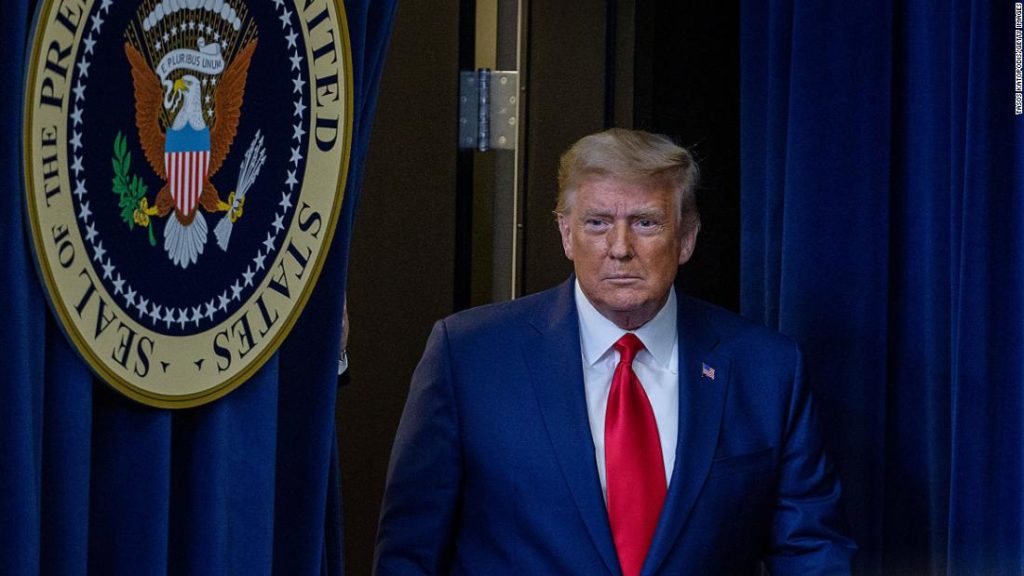Trump lawyers have argued for the widescale disenfranchisement of voters, including in Pennsylvania. So far, they have failed to convince the nation’s courts.
The frivolous lawsuits reflect Trump’s enduring disregard for democratic values and further threaten to infect the American psyche by ceaselessly casting doubt on a fair election that Joe Biden won.
While the Supreme Court was silent in that regard Tuesday, other federal and state judges have penned warnings about the Trump campaign’s affront to public trust in elections. The opportunity for further appeals is dwindling, as Tuesday marked a “safe harbor” deadline for state certification of election tallies.
“Democracy depends on counting all lawful votes promptly and finally, not setting them aside without weighty proof,” added Bibas, a 2017 Trump appointee to the 3rd US Circuit Court of Appeals. “The public must have confidence that our Government honors and respects their votes.”
The Trump campaign and its surrogates have targeted states in which the election was close, but as Bibas observed the final tally was not that close in Pennsylvania: Biden won by roughly 81,000 votes among nearly 7 million cast.
Other state and federal judges hearing Trump challenges, for example in Wisconsin and Michigan, have similarly laced their opinions with concerns about the “unprecedented” and “breathtaking” requests to set aside the votes of millions of citizens who cast ballots believing they would count.
When a federal judge in Georgia on Monday dismissed a complaint brought by lawyer Sidney Powell, a Trump ally, the judge said the challengers wanted “perhaps the most extraordinary relief ever sought in any federal court in connection with an election. They want this Court to substitute its judgment for that of two and a half million Georgia voters who voted for Joe Biden, and this I am unwilling to do.”
“This appeal turns on one of the most fundamental principles of the federal courts: our limited jurisdiction. Federal courts are not constituted as free-wheeling enforcers of the Constitution and laws,” Judge William Pryor wrote for the three-judge US panel, adding, “when someone sues in federal court, he bears the burden of proving that his suit falls within our jurisdiction …. (Lin Wood) failed to satisfy this burden.”
Even if the dispute fell within their federal realm, Pryor added, “Because Georgia has already certified its results, Wood’s requests to delay certification and commence a new recount are moot.” Pryor, as well as Judge Barbara Lagoa, also on the 11th Circuit panel, had been touted by Trump in the past as possible Supreme Court candidates.
Supreme Court defies Trump’s expectations
Trump has suggested he might prevail if an election dispute were resolved by the US Supreme Court.
Until Tuesday’s action in a Pennsylvania case brought by US Rep. Mike Kelly and other Republicans, Barrett had not voted in an election dispute.
The Kelly appeal sought to invalidate absentee votes cast under procedures set by a 2019 state law. The Pennsylvania Supreme Court dismissed the lawsuit. Judges said the complaint against the year-old law had been filed too late.
In urging the high court justices to let that Pennsylvania decision stand, Pennsylvania officials said GOP challengers were asking “this Court to undertake one of the most dramatic, disruptive invocations of judicial power in the history of the Republic. … The loss of public trust in our constitutional order resulting from the exercise of this kind of judicial power would be incalculable.”
The justices said nothing as they dismissed the case, and their individual votes were not disclosed. Sometimes in such orders justices dissent without making their views public, so it is difficult to know at this point whether Barrett or any other justice did not join the majority.
The high court had ensured that all filings in the Kelly case were in by Tuesday, the “safe harbor” deadline. Federal law sets other deadlines leading up to Congress’ final count on January 6, including next Monday, December 14, when state electors will convene. But results certified by Tuesday’s “safe harbor” are protected from challenge.
Before the November 3 election, a Supreme Court majority had intervened in some state ballot disputes.
On October 26, the night Barrett was confirmed, an eight-justice court issued an opinion that limited the counting of mail-in ballots in Wisconsin. Justice Brett Kavanaugh, Trump’s 2018 appointee, signaled at the time an openness to some Trump campaign arguments.
Justice Elena Kagan, dissenting, criticized the notion that legitimately cast ballots would “flip” the results. She said, “(T)here are no results to ‘flip’ until all valid votes are counted. And nothing could be more ‘suspicious’ or ‘improper’ than refusing to tally votes once the clock strikes 12 on election night. To suggest otherwise, especially in these fractious time, is to disserve the electoral process.”
You may also like
-
UK coronavirus variant has been reported in 86 countries, WHO says
-
NASA technology can help save whale sharks says Australian marine biologist and ECOCEAN founder, Brad Norman
-
California Twentynine Palms: Explosives are missing from the nation’s largest Marine Corps base and an investigation is underway
-
Trump unhappy with his impeachment attorney’s performance, sources say
-
Lunar New Year 2021: Ushering in the Year of the Ox

